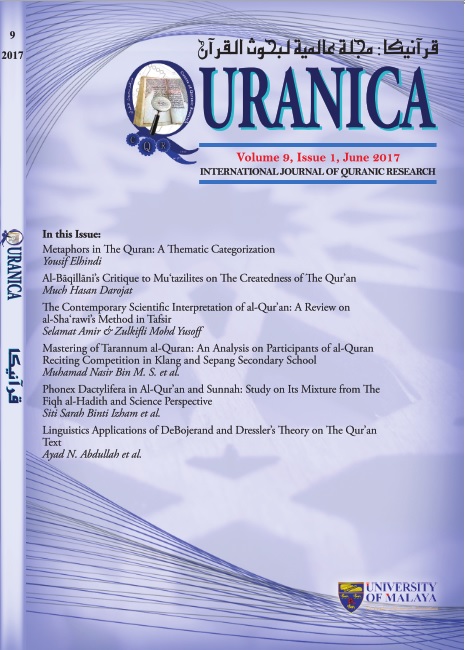Al-Bāqillāni’s Critique to Mu’tazilites on the Createdness of the Qur’an
Main Article Content
Abstract
This article aims to delineate al-Bāqillānī’s responses to the Mu’tazilites’ views on the createdness of the Qur’ān. As an Ash‘arite, al-Bāqillānī criticised some theological doctrines related to the topic formulated by this group; the meaning of speech, its division, several relevant verses of the Qur’ān and hadith dealing with the createdness of the Qur’ān, and how God speaks to human beings. He obviously shows his capacity and attempts to maintain the mainstream of Ash‘arites’ theological framework. Through this study, the author concludes that his theological principles based on the rationalistic way in understanding revelation. A combination of both methods of applying revelation and reason in a harmonious and appropriate way - makes this school more flexible and correct, and hence acceptable in the Muslim community. In this research, the approach that has been applied is textual analysis, using descriptive and analytical methods to investigate and analyze primary sources related to the issues. It also adopts the historical method to scrutinize several events on the subject.
Downloads
Article Details
Disclaimer
QURANICA makes every effort to ensure the accuracy of all its contents. However, opinions, discussions, views and recommendations are expressed in this journal do not necessarily reflect the official policy of QURANICA or views of its editors or publishers. Therefore, QURANICA and its publishers will not be liable for any controversy may be arisen. The journal reserves the right, at its sole discretion, to change its terms and conditions of publications.
Copyright
It is a condition of publication that manuscript submitted to the journal have not been published, accepted for publication, nor simultaneously submitted for publication elsewhere. By submitting a manuscript, the author(s) agrees that copyright for the article is transferred to the publisher, if and when the manuscript is accepted for publication.
